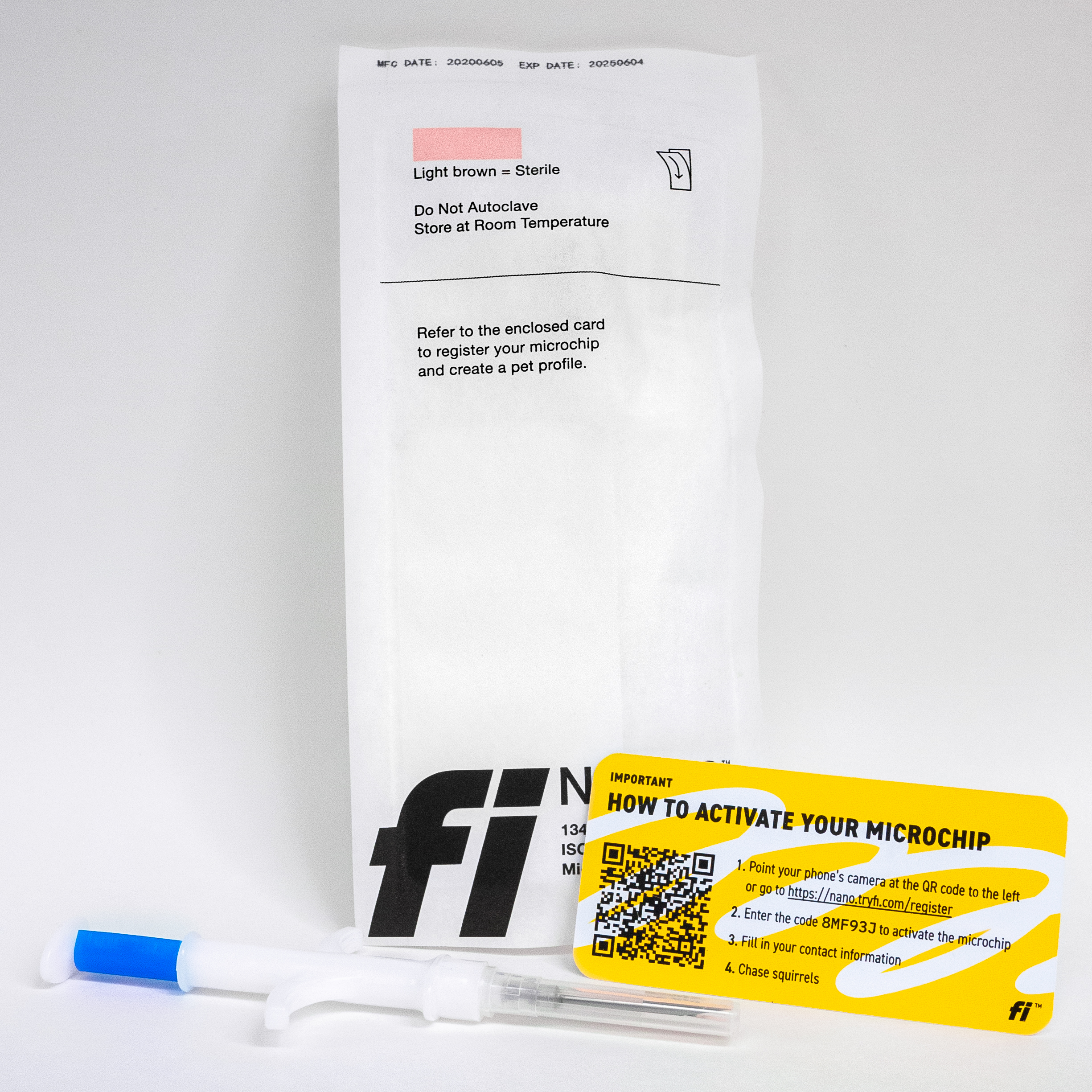There are two things you need to know about microchips for your pets: First, a microchip does not have GPS, so it can’t be used to track your lost pet. It can only be used to figure out that you are the pet’s owner once it’s found. Second, if you’re paying to register your pet’s microchip and keep the data linked to it up to date, you’re a sucker.
I, sadly, am one of those suckers. That became abundantly clear when I learned about the new Fi Nano, a microchip made by the folks behind the fancy Fi Smart Collar, which the company is positioning as a far cheaper and simpler way to microchip your pets. (The Smart Collar, I’m sure Fi would like you to know, does have GPS-tracking capabilities.)
Currently, I have two dogs and three cats, all of which are microchipped and registered through HomeAgain. The company charges me $US100 ($139) a year to maintain the data registered to each chip ($US20 ($28) per year, per pet). The main selling point of the Fi Nano is that it sells the microchips to vets, rescues, shelters, and breeders for just $US3 ($4) a chip — a discount of around $US20 ($28) a chip, according to Fi’s data — and registering your pet is automatic and free for life. (The company says it makes about $US1 ($1.50) per chip.)
See, registering a pet’s microchip is the only thing that makes it worth a damn. All a microchip contains is its unique number, which can be found by scanning it with a special scanner. That number is then ostensibly linked to your pet’s registration, which includes the pet’s parent’s address and contact information. But many people fail to register their pets, so even if they are microchipped, it does exactly jack shit to help get the lost pet back home.
The tech in the Fi Nano itself is nothing groundbreaking, which Fi CEO Jonathan Bensamoun said in an email was on purpose. “We intentionally use the same type of hardware for the microchip — that’s important because we want all of them to be backward compatible with all the existing scanners out there,” he said.

Each Fi Nano is automatically registered with the vet that will implant it, and the company provides a QR code with each microchip to give you an easy way to update the registration with your information. Fi’s chips are also compatible with all scanners, according to the company, and its registry is searchable by the American Animal Hospital Association’s global lookup tool.
All of this seems great, but it’s important to know that no matter which microchip you have, you can register it for free. Some microchip companies try to hide this fact beneath a mountain of promotions for other services, like pet insurance. But organisations like the nonprofit Michaelson Found Animals allow you to register and update any microchip at no cost. And if you think microchipping is not a big deal, you’re wrong: Dogs that are microchipped are 2.5 times more likely to be reunited with their owners, while cats are 21.4 times more likely, according to the American Veterinary Medical Association. Besides making sure your pet has a collar with tags that clearly display your phone number, an up-to-date microchip is a solid way to ensure your pet gets back home safely.
If you’re interested in using Fi as your microchip provider, it’s best to contact your vet or rescue of choice, so they can have the rice-sized implant sent to them for your pet. Regardless of which company you want to go with, the bottom line is clear: Microchip your damn pets.
